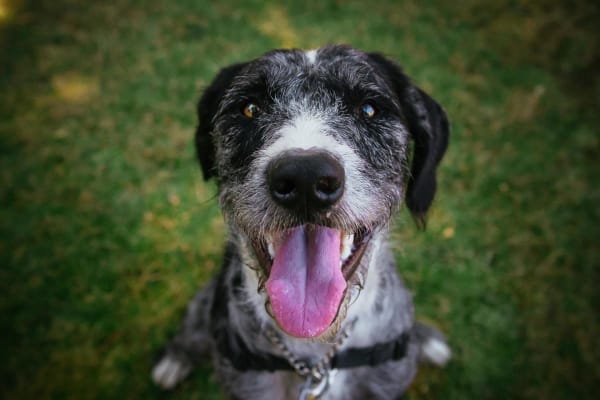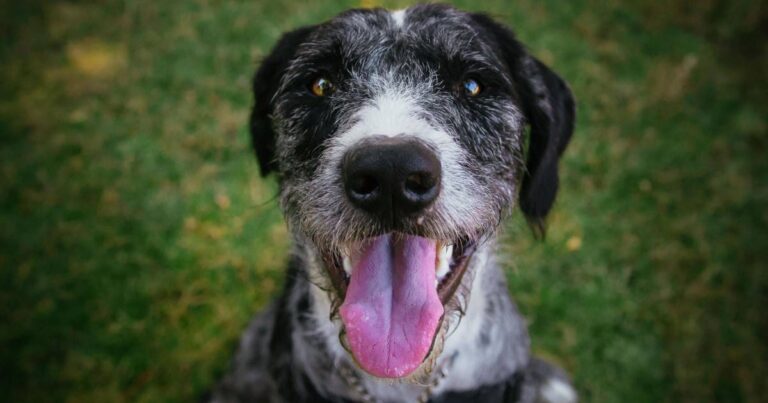If your dog is suddenly clingy, it could be due to anxiety, stress, boredom, illness, or routine changes. Dogs often become clingy if they sense our stress or anxiety, or if there are changes in their daily routine or household.
Being close to their owners provides dogs with a sense of safety and well-being, so they may seek comfort and reassurance through clingy behavior. Additionally, dogs may become more affectionate than usual if they are feeling unwell or anxious. It’s important to understand the underlying cause of your dog’s clinginess in order to address it effectively and provide them with the support they need.

Credit: toegrips.com
Understanding Clingy Behavior In Dogs
Have you noticed a sudden change in your dog’s behavior, with them becoming more clingy than usual? Understanding why dogs exhibit clingy behavior can help us address their needs and provide them with the care and support they require.
Causes Of Clingy Behavior In Dogs
Clingy behavior in dogs can stem from various factors, including:
- Illness
- Separation anxiety
- Stress
- Boredom
- Fear
- Routine changes
- Age
- Clingy dog breeds
- Dog pregnancy
Signs And Symptoms Of Clingy Behavior
Recognizing the signs and symptoms of clingy behavior in dogs can help us address their needs effectively. Some common signs include:
- Constantly seeking attention
- Following you everywhere
- Becoming overly attached
- Displaying signs of distress when separated
- Persistent whining or barking
Dealing With Clingy Behavior
When it comes to dealing with clingy behavior in dogs, it’s important to approach the situation with patience and understanding. Here are some tips to help address clinginess:
- Establish a consistent routine
- Provide mental and physical stimulation through interactive toys and regular exercise
- Gradually introduce periods of separation to help desensitize your dog
- Utilize positive reinforcement and reward desired behavior
- Seek professional help if the clingy behavior persists or intensifies
By understanding the underlying causes and addressing your dog’s needs, you can help alleviate their clingy behavior and strengthen your bond.

Credit: www.embracepetinsurance.com
Possible Reasons For Sudden Clinginess
Is your dog suddenly more clingy than usual? If so, there could be several potential reasons behind this change in behavior. Understanding these possible causes can help you address your dog’s needs and provide them with the comfort and support they require. Here are a few common reasons why your dog may be displaying sudden clinginess:
Stress And Anxiety
Stress and anxiety can manifest in different ways in dogs, and clinginess is one of them. Just like humans, dogs can experience stress and anxiety, which can lead to clingy behaviors. This could be triggered by various factors, such as loud noises, unfamiliar environments, separation from their owners, or even changes in their daily routines. If you notice your dog being clingy, it could be a sign that they are feeling anxious or overwhelmed.
Changes In Routine Or Environment
Dogs thrive on routine and familiarity. Any significant changes in their routine or environment can cause them stress and result in clingy behavior. This could include things like moving to a new house, introducing a new family member (human or animal), or even rearranging furniture in your home. Dogs may seek reassurance and comfort from their owners during these times of change and uncertainty.
Physical Illness Or Discomfort
Dogs are masters at hiding their pain or discomfort, but sudden clinginess can sometimes indicate an underlying physical health issue. If your dog is not feeling well, they may seek closer proximity to their owners for comfort and security. Keep an eye out for other signs of illness, such as changes in appetite, lethargy, vomiting, or diarrhea. If you suspect that your dog’s clinginess is related to a physical ailment, it’s crucial to seek veterinary attention.
In conclusion, sudden clinginess in dogs can be attributed to various factors such as stress, changes in routine or environment, and physical illness or discomfort. By addressing these possibilities, you can better understand and support your dog during this period of increased clinginess.
Addressing And Managing Clingy Behavior
If you have noticed that your dog has become clingy all of a sudden, it is important to address and manage this behavior. Dogs can exhibit clingy behavior for various reasons, such as anxiety, stress, boredom, or routine changes. Understanding the underlying cause is essential in order to effectively manage the clinginess and help your dog feel more secure and comfortable.
Providing Mental And Physical Stimulation
Dogs thrive on mental and physical stimulation, and a lack of these can contribute to clingy behavior. Ensure that your dog receives plenty of exercise and playtime to release excess energy. Engaging in activities such as interactive toys, obedience training, and puzzle games can also provide mental stimulation, keeping your dog occupied and mentally stimulated.
Establishing A Consistent Routine
Creating and sticking to a consistent daily routine can help reduce your dog’s clingy behavior. Dogs are creatures of habit and thrive on predictability. Establish a regular feeding, exercise, and sleep schedule for your dog. Consistency in routine can create a sense of security for your dog, reducing anxiety and clinginess.
Seeking Professional Help If Necessary
If your dog’s clingy behavior persists despite your efforts to address it, or if it is accompanied by other concerning symptoms, it may be beneficial to seek professional help. A veterinarian or a certified animal behaviorist can help determine the underlying cause of the clinginess and provide guidance on how to manage it effectively. They may recommend behavior modification techniques, medication, or other interventions to help your dog feel more at ease.
Conclusion
Addressing and managing clingy behavior in your dog requires patience and understanding. By providing mental and physical stimulation, establishing a consistent routine, and seeking professional help if necessary, you can help your dog feel more secure and reduce their clingy tendencies. Remember that every dog is unique, and what works for one may not work for another. With proper support and care, you can help your dog overcome their clingy behavior and foster a healthy and balanced relationship.

Credit: www.goodreads.com
Frequently Asked Questions On Why Is My Dog So Clingy All Of A Sudden
What Does It Mean If Your Dog Is Suddenly Clingy?
If your dog is suddenly clingy, it could be due to anxiety, stress, boredom, fear, routine changes, or age-related issues. Dogs can also become clingy if they sense your stress or if you make changes in their daily routine or home environment.
Clinginess is a way for dogs to seek comfort and reassurance from their owners.
Why Does My Dog Suddenly Want To Be Held All The Time?
Dogs may suddenly want to be held all the time due to various reasons like anxiety, stress, illness, boredom, routine changes, or a need for reassurance. Being close to their owners provides them a sense of safety and well-being.
Why Is My Dog Being More Affectionate Than Usual?
There are a few reasons why your dog may be more affectionate than usual. It could be due to a change in their environment or routine, or they may be seeking comfort and reassurance. Additionally, dogs can become clingy if they sense stress or anxiety.
Do Dogs Get Clingy When They Are Sick?
Dogs can become clingy if they sense our stress or anxiety, experience changes in their routine or environment, or if they are feeling unwell or anxious. Clinginess can be a sign that something is wrong with your dog.
Conclusion
It’s important to understand why your dog may suddenly become clingy. It could be a result of anxiety, stress, boredom, fear, routine changes, or even a sign of illness. Dogs are social animals and seek comfort and reassurance from their owners.
They may also become clingy if there are changes in their environment or if they sense your stress or anxiety. Pay attention to your dog’s behavior and create a calm and stable environment to help alleviate their clinginess. Seek professional help if needed.
Remember, understanding your dog’s needs is crucial for their well-being.



